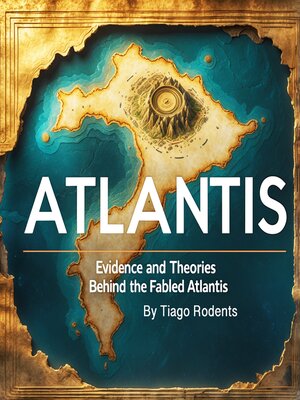
Sign up to save your library
With an OverDrive account, you can save your favorite libraries for at-a-glance information about availability. Find out more about OverDrive accounts.
Find this title in Libby, the library reading app by OverDrive.



Search for a digital library with this title
Title found at these libraries:
| Library Name | Distance |
|---|---|
| Loading... |
This audiobook is narrated by a digital voice.
The story of Atlantis begins not in the depths of the ocean, but in the mind of one of history's greatest philosophers. Around 360 BCE, Plato penned two dialogues that would capture the human imagination for over two millennia: the Timaeus and the Critias. In these works, he described a magnificent island civilization that existed nine thousand years before his time, a place of incredible wealth, advanced technology, and ultimately, divine retribution.
Plato's account was no casual mention or passing reference. He provided specific details about Atlantis that have tantalized researchers and treasure hunters ever since. According to his description, the island was larger than Libya and Asia combined, positioned beyond the Pillars of Hercules, which we now know as the Strait of Gibraltar. The Atlanteans were descendants of Poseidon, the god of the sea, who had fallen in love with a mortal woman named Cleito. Their union produced ten sons, who became the rulers of this maritime empire.
The capital city of Atlantis was described as a marvel of engineering and urban planning. Concentric rings of water and land alternated around a central island, connected by bridges and tunnels. The innermost island housed a magnificent temple dedicated to Poseidon, covered in silver and gold, with walls of brass, tin, and the mysterious metal orichalcum, which Plato claimed was more precious than gold at that time. The city's harbors were filled with vessels from around the known world, testament to Atlantis's role as a major trading power.







